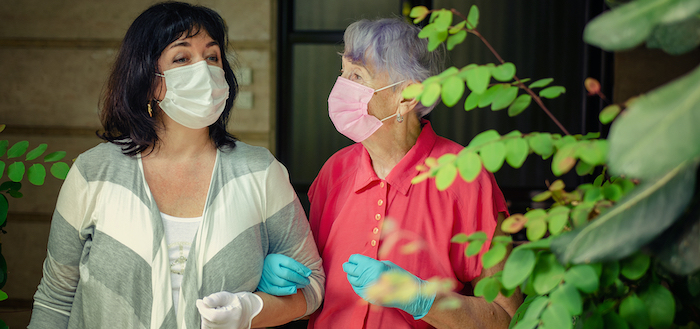Caring for a Loved One With Mesothelioma

Mesothelioma patients often rely on a loved one as their primary caregiver. There are several aspects individuals should consider when becoming a caregiver.
Mesothelioma patients can need substantial care. Caregiving is often a full-time job with physical and mental requirements. Caregivers need to not only care for the patient but also for themselves.
Request a Free 2025 Mesothelioma Guide
Mesothelioma Caregiver Requirements
Mesothelioma patients will work with their medical care team to establish a plan of care. Their needs will often depend on the severity of their condition. Some patients may be able to continue low-intensity activities. Others may need full care.
When caring for a mesothelioma patient, individuals may need to:
- Help the patient with dressing and undressing.
- Assist with meal planning and preparation.
- Ensure the patient takes their prescriptions properly.
- Bring the patient to treatments and follow-up appointments.
- Communicate the patient’s wants and needs to their larger care team.
- Provide emotional support as they deal with their cancer diagnosis and treatment plan.
- Provide physical support during other day-to-day activities.
Patients will likely benefit from a caregiver who exercises compassion, care and patience.
Some cancers, such as mesothelioma, may be aggressive. As a result, the patient may go from fully independent to relying on others for help. This can be jarring for the patient, and exercising kindness may help them adjust to the changes.
Understanding a Mesothelioma Patient’s Wants and Needs
Caregivers should strive to listen to a mesothelioma patient’s wants and needs. Every patient is different. What feels like help to one patient may not be helpful for another. Loved ones should:
- Ask the patient what they want their care to look like.
- Listen to the patient’s hopes and concerns.
- Explain when something isn’t possible or is unsafe.
- Strive to create as much comfort as possible for the patient.
Patients should discuss their care plan with their doctor. A mesothelioma specialist may be able to provide recommendations to prioritize a patient’s desires.
Addressing Personal Needs as a Mesothelioma Caregiver
Caregivers must also take care of themselves. It is easy for a family member to experience burnout when dedicating their time to another.
Loved ones are also dealing with emotions after a diagnosis. They may experience sadness, worry, fear, anger or grief. Caregivers should address their mental and emotional well-being. They may consider joining a caregiver support group. It can be helpful to talk with others going through a similar experience.
Asking for Help as a Mesothelioma Caregiver
Caregivers should never avoid asking for help when they need it. Other family members or loved ones may be able to step in and provide small breaks. This time allows caregivers to rest and recharge.
Caregivers should establish a strong support network of loved ones and professionals. These individuals can help them when they need it most.
Loved ones may also consider bringing in a nurse or aide to provide support. Some insurance plans may provide skilled healthcare services. Patients should reach out to their insurance company to determine their benefits.
Some mesothelioma treatment centers also have support resources and support coordinators. Coordinators can help caregivers and patients find lodging, food and other local resources.
Stepping into a caregiver role is no small task. Caregivers should feel comfortable asking for help and using resources. If caregivers take care of themselves, they will be at their best to take care of their loved one.